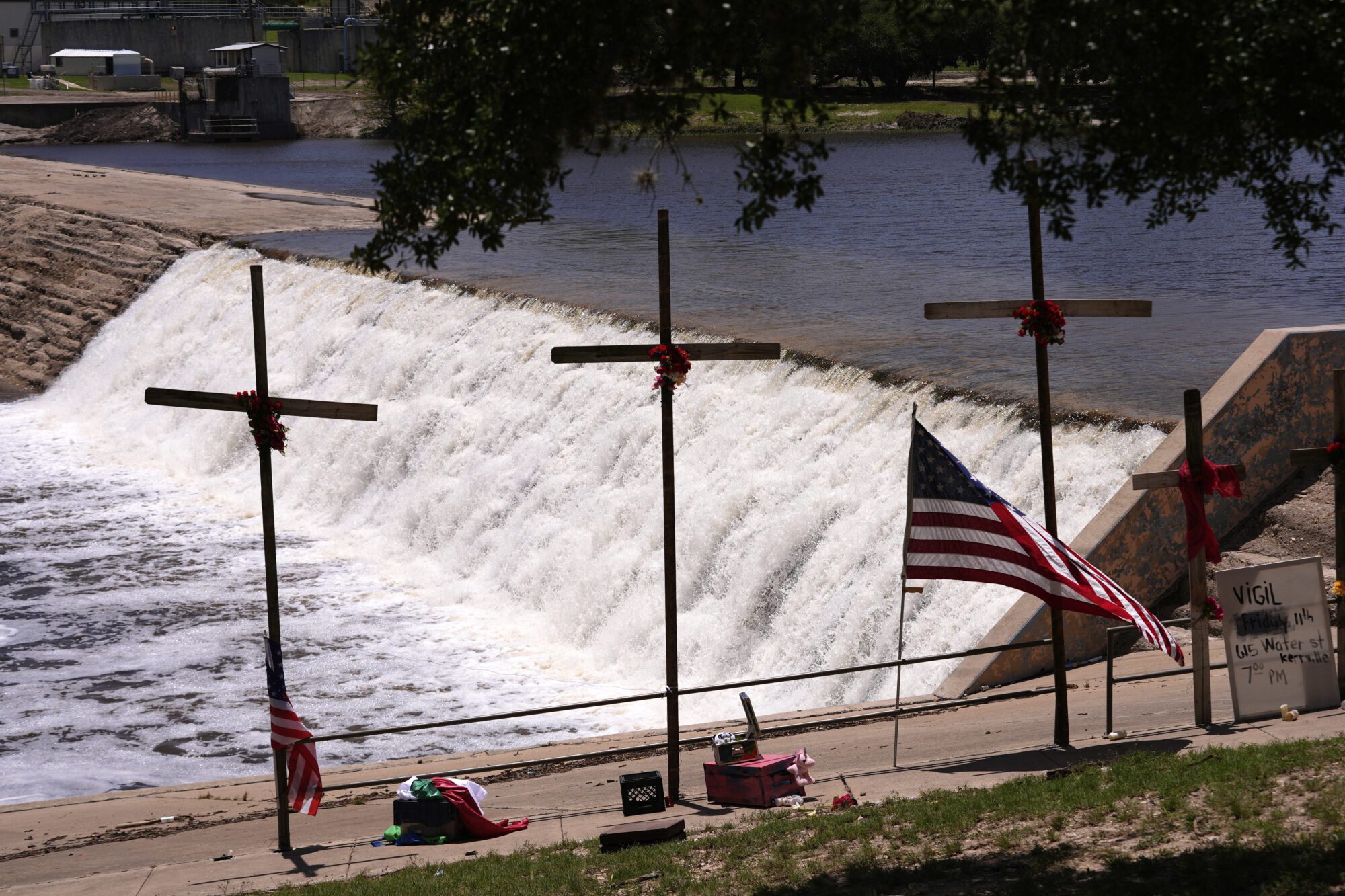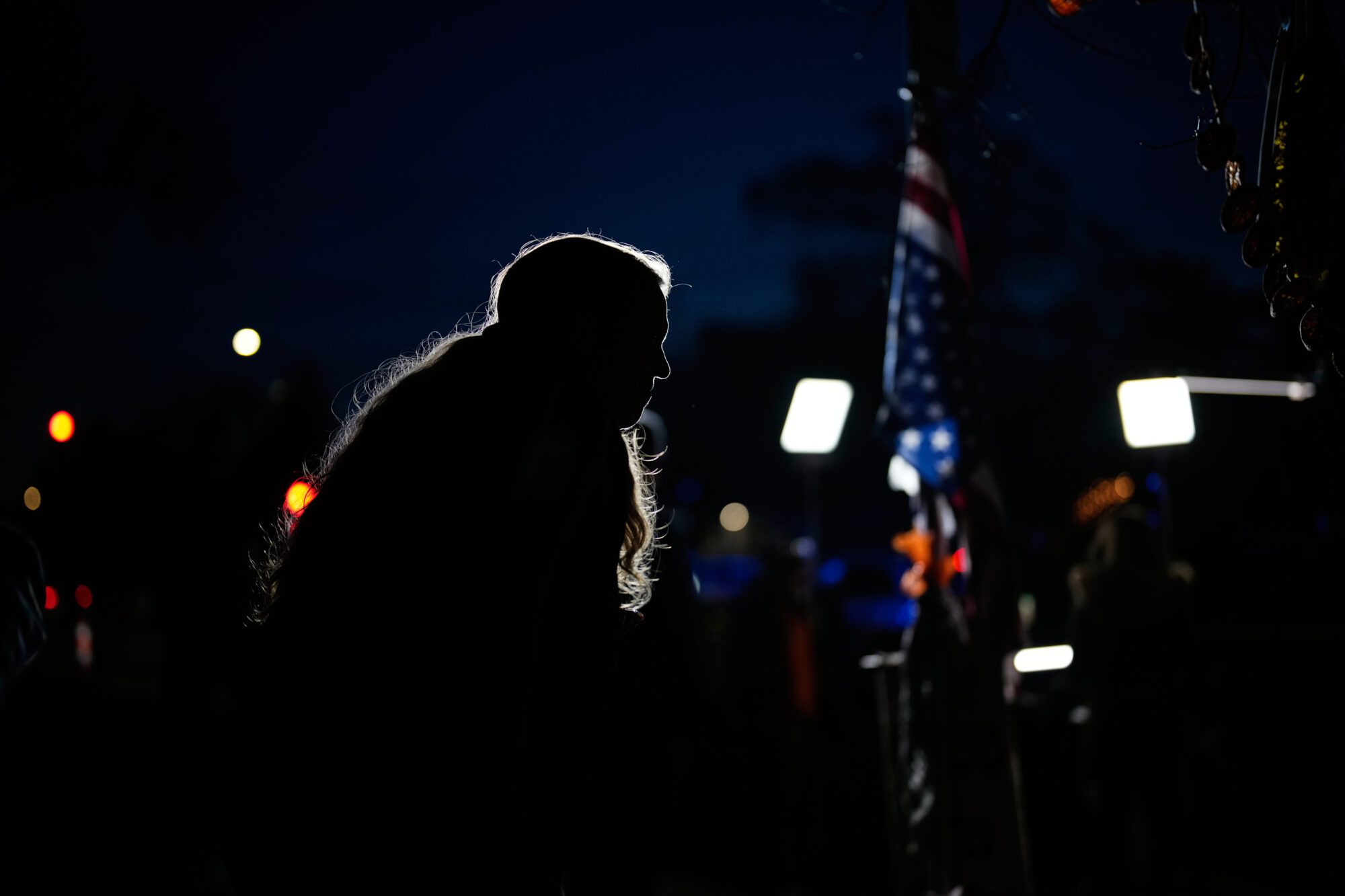
Crosses were erected as a memorial for victims of the flash flood along the Guadalupe River in Kerrville, Texas, Thursday, July 10, 2025. (AP Photo/Gerald Herbert)
- There are always those willing to stoke rage, eager to blame politicians or even victims for tragedies. Especially in this social media age. But it doesn’t have to be like this.
Throughout his time in the spotlight, Fred Rogers, affectionately known as Mister Rogers from his long-running children’s television show, would share a bit of advice his mother gave him when he was a boy. When news sources reported cataclysmic events, she would tell him, “
Always look for the helpers. There’s always someone who is trying to help.” That sentiment rings true to this day. No matter the disaster, there are always individuals, professionals or otherwise, willing to step in and assist, risking their lives and giving their time to aid others.
Unfortunately, the reverse is also true. There are always those willing to stoke rage, eager to blame politicians or even victims for tragedies. Especially in this social media age.
Some of the reactions to the recent, devastating flooding in Texas Hill Country are a prime example of what not to do. Given the nation’s political climate, bad actors are quick to jump in with their own commentary about tragic events. Instead of leading with compassion with a focus on honesty, they do what they can to weaponize the trauma in a way that makes political adversaries look bad. Instead of a focus on fellow citizens, their main objective is to make their enemies look terrible. This callous behavior treats actual victims as collateral damage in some tit-for-tat battle of ideologies.
As of July 9th, the total number dead in the Texas flooding is more than 120, with hundreds more missing. Some of the deceased are young campers and counselors from a Christian summer camp for girls. The heartache of losing anyone in such a horrific way, especially young children, young adults, and even entire families, is impossible to quantify. The emotional trauma from these great losses will forever be felt by those who knew and loved them. And it should go without saying that one does not need to identify with or relate to victims’ lives and situations in order to offer compassion and join in with a shared sense of grief.
But those whose minds are poisoned by politics take a different route.
On X, formerly known as Twitter, leftist activist Ron Filipkowski said in a now-deleted post, “The people in Texas voted for government services controlled by Donald Trump and Greg Abbott. This is exactly what they getting.” It takes no effort to figure out what he meant by that statement. In his mind, the Trump administration is at fault for the disaster. And the voters who supported him? Well, they almost deserve the harm and/or complete destruction of life and property.
It is a diseased mind that views something like this and first responds with a brand of “I told you so.” That is the mark of an individual who has placed politics far above human beings.
Looking at everything through the lens of politics colors one’s perspective to an extreme degree. It’s not the way to approach any aspect of life, and certainly not the thing to do during the most trying times.
According to the National Weather Service, warnings were issued more than three hours in advance. And the rainfall predictions were nowhere near what actually occurred. More than anything, it appears the disaster was unexpected by officials.
But even if after reviews take place serious changes have to be made, those affected by the flooding will still not have “deserved it” for voting for Donald Trump.
These poor attitudes aren’t specific to one side of the political aisle.
During his show on Wednesday, pundit Charlie Kirk wondered aloud about the death toll from the flooding, saying, “What you’re not being told by the media anywhere is that the death toll would likely not have been as high if it wasn’t for DEI. This Texas tragedy is just the latest example. How many people unnecessarily died because of DEI? Well, you can rest easy because they say diversity is our strength, and now those little girls are dead.” Kirk pointed to the the fire chief in Austin, a black man named Joel G. Baker. Search and rescue teams were deployed from Austin to help, and according to reports, that help was delayed. But there is no indication Baker’s race had anything to do with the delay or any confusion that may have occurred regarding deployment. However, Kirk insisted the race of the fire chief is a reason for a death toll in the hundreds.
This is a lazy reaction based not on proof of any sort of race-related wrongdoing, but a desire to pin blame on political opponents who view DEI in a positive manner. And it is despicable.
Far too many draw premature and unsubstantiated conclusions in order to bolster popular partisan talking points. These words and actions make already bad situations worse.
For most people, their first reaction to a tragedy, natural or manmade, is to feel bad for and mourn those who are suffering. This should be the standard reaction. There will certainly be time to reconsider what could have been done and see if improvements to procedures or personnel need to be made. But the initial reactions, even well past the day of disaster, should not include opinions that are directed by political bitterness. First and foremost, it’s a slap in the face to victims. And beyond that, the chance for inaccuracy is extremely high.
When the next natural disaster or manmade tragedy strikes, the usual suspects will go into overdrive in an effort to take strategic shots at their political opponents. When that happens, the real victims are forgotten or purposely cast aside. This is the state of things during a time when politics carries with it an almost religious fervor. Human beings are just pawns. There’s always some nefarious plot at play. And empathy is in short supply. But it doesn’t have to be like this.
It’s important to be a helper, if possible. It’s also necessary that we don’t contribute to this problem of acrimonious discourse. There is a time and place for difficult questions and honest answers. But first of all, these must be compassion.











